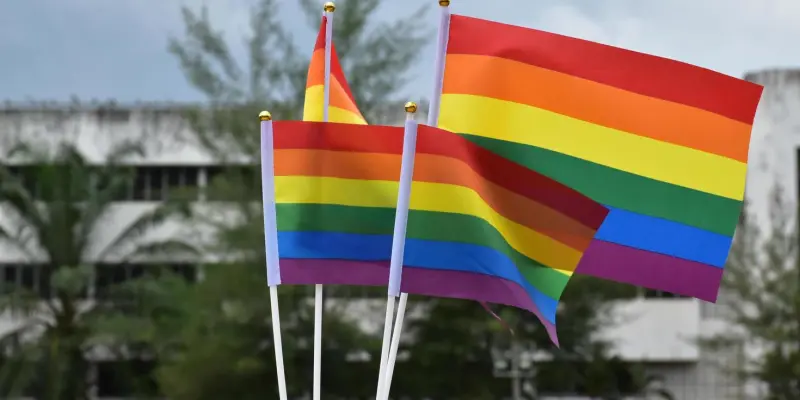In a significant legal development, a federal district court in California is tackling allegations of harassment and discrimination raised by a former United States Postal Service employee. The plaintiff, a transgender woman, has accused USPS of fostering a hostile work environment after her gender transition was revealed by a coworker. The case delves into whether a series of “discrete acts,” such as derogatory slurs, personal threats, and demotion from a supervisory role, can collectively establish a toxic workplace. This legal discourse highlights the evolving interpretation of workplace discrimination, particularly for transgender individuals, and its alignment with broader anti-discrimination protections under U.S. law.
Legal Proceedings and Harassment Claims
The court’s involvement brings focus to the implications of the U.S. Supreme Court’s 2002 ruling in Nat’l R.R. Passenger Corp. v. Morgan, which addressed the significance of discrete acts like termination or demotion as standalone discriminatory events. However, the court has acknowledged that even isolated actions, when assessed collectively within a broader context of bias, can contribute significantly to an unwelcoming work environment. The plaintiff contends that following the disclosure of her gender identity, she endured relentless homophobic slurs and invasive sharing of private matters, ultimately resulting in her forced demotion. This demotion came despite her qualifications, as she was replaced by someone not openly gay or transgender, further fueling her claims of partiality and institutional bias.
During these harrowing experiences at USPS, the plaintiff found temporary relief through a transfer to a different environment but soon was forced back to the original hostile station. This return exacerbated her already declining mental health, culminating in profound depression. Requests for leave to cope with the mounting stress were reportedly dismissed by USPS. As tensions escalated, the plaintiff felt she had no viable option but to resign, citing intolerable working conditions. In denying USPS’s motion to dismiss sections of the lawsuit based on procedural grounds, the court recognized the collective effect of the alleged discriminatory acts as potential evidence of a legally hostile workplace. It emphasized that while certain actions might seem isolated if viewed in aggregation, they underscore an unlawful employment practice.
Aligning With Broader Legal Context
This legal battle occurs against a backdrop of evolving judicial interpretations and landmark decisions, such as the U.S. Supreme Court’s 2020 ruling in Bostock v. Clayton County. Bostock marked a pivotal point in affirming that Title VII protections encompass discrimination based on sexual orientation and gender identity. This case in California highlights the judiciary’s continued dedication to upholding these rights, even amidst fluctuating federal guidelines historically aimed at restricting gender identity recognitions. Within this purview, the court overturned USPS’s assertion that some incidents were invalid due to a lack of timely Equal Employment Opportunity (EEO) counseling by the plaintiff. Instances like the obligatory return and denied leave requests were upheld as crucial components of the plaintiff’s allegations.
Moreover, this case maintains its relevance by encompassing claims of retaliation against a postal service EEO counselor, whom the plaintiff accuses of obstructing the grievance procedure. The court’s stance reflects an increased understanding of discrimination’s nuances, advocating for a more inclusive interpretation that resonates across different jurisdictions. This decision reflects an advantageous trend for employees as they seek acknowledgment and rectification within a legal system increasingly aware of discrimination’s intricacies. The ongoing acknowledgment of discrete yet linked discriminatory acts forming a hostile environment serves as a warning to employers emphasizing the necessity of nurturing a deeply inclusive workplace ethos.
Implications for Workplace Inclusivity
The implications of this case extend beyond the courtroom, offering a critical perspective for businesses and their human resources departments in fostering inclusive environments. It exemplifies the judicial recognition of cumulative discriminatory effects and sets a precedent on how such claims should be addressed in the workplace. As discrimination laws advance, employers are urged to thoroughly evaluate their practices, ensuring they maintain a respectful space that supports all identities. Recognizing and properly responding to grievances before they require adjudication could prevent the elevation of relatively minor transgressions into overarching legal disputes.
Promoting diversity and understanding through proper training programs and policies not only helps mitigate potential legal challenges but also positively influences workplace morale and productivity. The broader implications of the court’s proceedings serve as an educational tool for organizations seeking to evolve within a progressively inclusive societal framework. As this legal case unfolds, it pushes the boundaries of how courts and workplaces alike approach discrimination and inclusivity, suggesting a shift towards more comprehensive protective measures. The judiciary plays an essential role in reiterating the fundamental notion that discrimination in any form is incompatible with modern workplace ethics.
A Path Forward
In a notable legal case, a federal district court in California is currently examining claims of harassment and discrimination brought by a former employee of the United States Postal Service (USPS). The accuser, a transgender woman, asserts that she faced a hostile work environment following the revelation of her gender transition by a fellow employee. Central to this case is whether a series of “discrete acts,” such as derogatory remarks, personal threats, and her demotion from a supervisory position, collectively contribute to creating a toxic workplace atmosphere. This case highlights the changing legal interpretations of workplace discrimination, especially concerning transgender rights, and how these interpretations relate to broader anti-discrimination laws in the United States. Moreover, the outcome of this case could set a precedent for how similar situations are judged in the future, offering further protection and clarity for transgender individuals facing discrimination and harassment in workplace settings.

